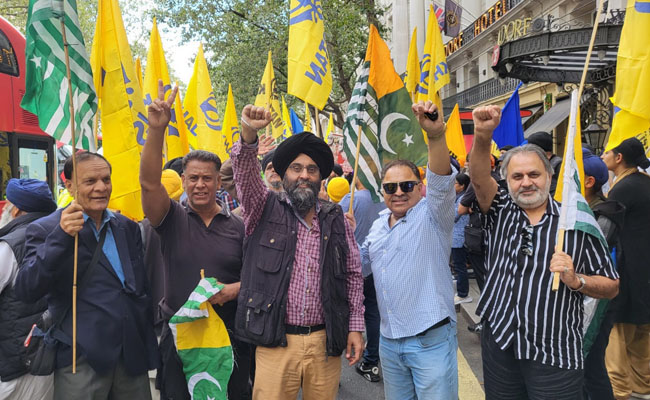Time to tackle the Indian State’s Majoritarian Fascism: the G20 should hold Modi to account
The ongoing onslaught in Indian-controlled territories against multiple nations of historic standing, religious minorities, so-called lower caste communities and any form of democratic dissent is now widely recognised by neutral observers of South Asia as a concerted, fascist endeavour to create a majoritarian right-wing Hindu-nationalist state. The Indian establishment openly declares the objective, so it is time the world responded in an equally unequivocal manner. The Hindutva project is ultimately doomed to fail as freedom always prevails, but the cost in terms of loss of life, economic destruction and potentially even the triggering of widespread regional conflict involving neighbouring states is a price the international community must quickly realise the world cannot afford to pay.
The forthcoming G20 summit in New Delhi, scheduled to be held on 9th and 10th September 2023, provides an ideal opportunity for the world’s most influential decision makers to tackle Indian PM Modi on this grotesque slide to Nazi style criminality that poses an open challenge to international law, as well as to civilised norms of governance. Any economic dealings with the Indian state must be conditional on its adherence to those accepted standards, otherwise they will simply reward illegality and immorality whilst risking a catastrophic outcome which may resemble the horrors of Nazi aggression in the last century.
The charge sheet against the Indian state, as a serial violator of internally accepted human rights, includes many of the worst excesses that the modern world has seen:
- The genocide carried out against Sikhs and Kashmiris over the past decades, which has cost hundreds of thousands of lives, remains unpunished, with perpetrators openly glorified by a massive terrorist state ‘security’ set up, in clear breach of the Genocide Convention, 1948.
- The forcible denial of the right of self-determination in Punjab and Kashmir and in restive north eastern regions; India has formally told the UN that it does not accept that the right of self-determination applies to nations held captive within its control, in open violation of Article 1 of the 1966 Covenant on Civil and Political Rights.
- The holding of political prisoners, in many cases for decades, under draconian laws that do not meet international standards – in order to deny nations such as the Sikhs and the Kashmiris an authentic voice amid the relentless din of Hindutva narratives put out by the Indian establishment, media and state-backed fascist organisations like the RSS, VHP and others.
- The routine use of extra judicial killings, torture and even the weaponization of rape as brutal, illegal means of crushing opposing voices, as has been extensively reported by the world’s most respected human rights organisation.
- Targeted killings of leading opposition figures, now even being undertaken abroad with recent killings in the UK and Canada and elsewhere.
- The progressive reduction of the media to a mouthpiece of the state, along with the widespread closing down of media platforms that provide essential democratic space for dissenting views, leading to the country plummeting down the ‘freedom index’.
- Economic degradation (including the theft of natural resources, such as river waters) and demographic changes in Punjab and Kashmir, designed to make the regions dysfunctional and to undermine the very concept of their status as prosperous homelands with their own identity.
- Demonisation of religions and the repeated desecration of scriptures aimed at subjugating entire faiths as a means of manifesting Hindutva’s hegemonic power.
Conflict resolution in Punjab and Kashmir requires the peaceable exercise of self-determination in those regions in accordance with international law. The process will result in freedom, stability, and prosperity – as well as stabilise a dangerous conflict zone that may see nuclear armed states settle differences in other ways. Alongside that, genocide perpetrators must be lawfully held to account for the heinous crimes of the recent past – which India still denies.
We are protesting today, on what should have been a day that marked independence for all the nations and peoples of the former British construct of imperial India, to demand our birth rights and to appeal to the wisdom of the international community, including the G20 forum, to recognise the way forward – before it is too late.
Freedom in both Khalistan and Kashmir is a natural and lawful aspiration in both homelands; no amount of India’s state terrorism will deflect proud nations in securing that just outcome. It is important for that message to be heard in New Delhi as well as the other capitals of the world, and for wisdom to prevail.
